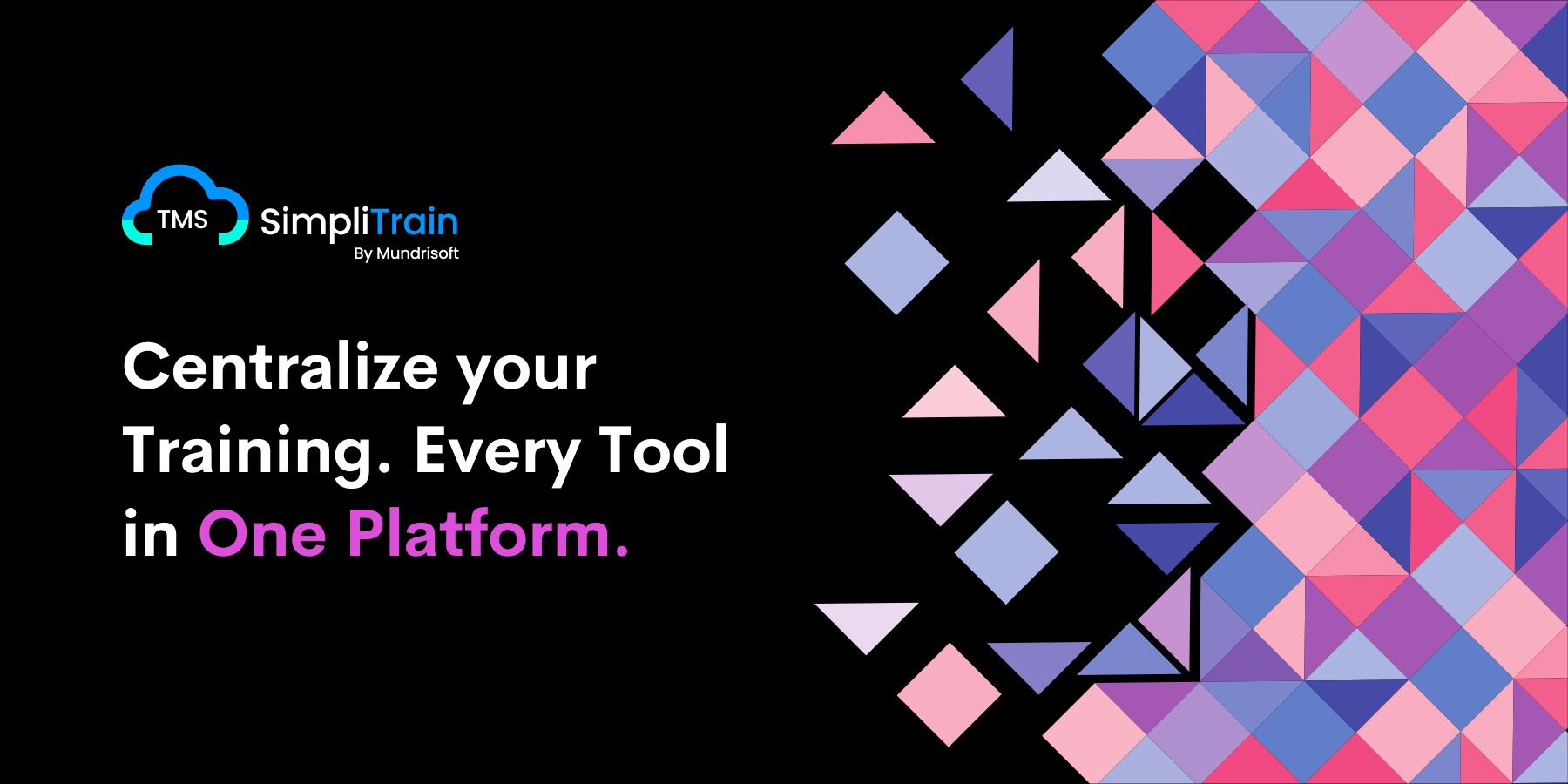What is the first name that comes to mind when you hear the term Franchise? Starbucks, McDonald’s, or The UPS Store? Undoubtedly the most successful franchise businesses across the globe. But, how have these brands managed to do so? This is where the term Franchise Management becomes significant and so does training for that matter.
As it is widely known, a Franchise is a business model that involves a Franchisor and a franchisee. In most cases, the franchisor is a business with a well-established brand and business systems. A franchisee, on the other hand, is a person or business that makes an investment and pays an ongoing share of profits to the franchisor in exchange for the right to do business under the brand name using the existing business systems. Franchise management involves preparing franchisees to operate a business under a specific brand and system. This is achieved by providing training to the franchisee staff before the actual business operations begin. Irrespective of the industry, Franchise Management works along the same lines in training too.
Let’s consider a Training Franchise looking to expand to various global locations. While there is a whole discussion about localization and translation of the training content, standard operations of the training franchise would depend on Franchise Management. The training included here serves to meet the following objectives:
- Enhancing Capacity so that franchisees can successfully represent the brand in their locations. The focus here is on entrepreneurial skills, people skills, and maintaining brand consistency.
- Providing Foundational Knowledge about the business, operations, and existing infrastructure. This includes introductions to key team members and sharing an overview of the business model.
- Ongoing Support through recurring training, recertification, and refreshers to stay updated on management changes, product updates, and market trends.
- Field Visit Training for improving franchisee performance, and business planning.
Franchise management in Training aims to equip franchisees with the necessary skills and knowledge to operate a franchise successfully and maintain brand consistency.
What is the importance of maintaining consistent quality standards across multiple franchise locations?
Imagine McDonald’s chain without the famous logo, or the mascot. Would the brand be received the same way? Maintaining consistent quality standards across multiple franchise locations is crucial for the success and growth of a franchise business. The same applies to the Training industry too. Take for instance Dale Carnegie franchise that operates across the globe. With a big brand name comes even bigger responsibilities.
The key reasons why consistency becomes important here are as follows.
- Consistency = Brand Identity and Trust
Consistent quality, service, and training experience across all franchise locations helps build a strong, brand identity and reinforces the brand’s reputation and value proposition that is already recognized and trusted.
- Consistency = Client Satisfaction
For a Training Franchise, maintaining quality standards guarantees that clients receive consistent training, regardless of which franchise location they visit. Such positive experiences lead to repeat business and customer loyalty.
- Consistency = Streamlined Operations
Every Training company has its standard operating procedures and guidelines. When it is included as a part of the training, it can help franchisees deliver consistent quality, optimize efficiency, and reduce errors. Setting clear quality benchmarks enables franchisors to monitor compliance and provide targeted support to franchisees.
By prioritizing consistency, franchisors can drive the overall success of their training franchise network. Franchise management in the training industry may not seem different from that of other industries. However, it is essential to understand franchise management in training differently and understand the key challenges, and strategies for standardizing quality across franchise locations.
I. UNDERSTANDING FRANCHISE MANAGEMENT IN TRAINING
As mentioned in the beginning, Franchise management involves the training and support provided by a franchisor to ensure consistent quality, brand standards, and operational efficiency across multiple franchise locations. The training usually comprises:
- Initial Franchise Training/Onboarding: The first step of Franchisee Management is where the Franchisor provides initial training to franchisees, covering topics like the business model, products/services, brand standards, operations, and management. The training also includes onboarding support to help franchisees successfully launch and integrate into the franchise system.
- Ongoing Training and Development: Continuous training is essential for any Franchise model from a training industry perspective as the content and the delivery models are constantly updated. These kinds of trainings leverage blended learning approaches like online courses, on-site sessions, and regular coaching to provide recurring training sessions to keep franchisees up-to-date on changes, new products/services, and best practices.
- Brand Standards, Quality Control, and Performance Monitoring: Training companies leverage technology solutions to provide tools, resources, and support to help franchisees maintain quality. Conducting regular audits and inspections to monitor compliance with brand standards and tracking key performance metrics across the franchise network is also a part of this.
Franchise Management in training requires the support of a robust tool like the Training Management System (TMS) to manage and optimize the functioning of business across all locations. Franchise Management also focuses on aligning the interests and roles of key stakeholders through comprehensive training, clear communication, and collaborative relationships to maintain consistent quality and brand standards across the franchise network.
Training for franchise operations can be different based on the key stakeholders involved and their roles. Each role holds specific responsibilities the content and even delivery model can be different at times. To comprehend this difference, it is essential to know the key stakeholders involved.
- Franchisor: The primary training brand owner, who develops and delivers comprehensive training programs for new and existing franchisees. The franchisor establishes brand standards, operating procedures, and quality control measures. The franchisor is responsible for providing ongoing support, resources, and communication channels for franchisees and monitoring franchisee performance and compliance with brand standards.
- Franchisees: The ones who invest to use the brand name/identity to deliver training at different locations are called Franchisees. They participate in recurring training programs to gain the necessary skills and knowledge. This training helps in implementing brand standards and operating procedures in their franchise locations.
- Franchise Employees: Are a part of the franchisee and receive training on brand standards, customer service, and operational procedures. They contribute to the consistent delivery of the brand experience at the franchise location and share feedback and insights with franchisees to help improve operations.
- Customers: Customers/Clients/Learners are the ones at the receiving end of the services, i.e. training in this case. They expect a consistent brand experience across all franchise locations and provide feedback to franchisees and the franchisor on their satisfaction with the training. The acceptance of training and their loyalty can impact the overall success of the franchise network.
- Suppliers/Partners: While training Franchisors are responsible for the content or assessment etc., they often collaborate with partners to ensure consistent quality and availability of content and other services.
- With all that being said one might wonder, why the franchise model is so popular. Here are the benefits of the franchise model in scaling training services regionally or globally.
- Rapid expansion without the need for significant capital investment: The franchise model allows franchisors to rapidly expand their training services while leveraging the franchisee’s local market knowledge, real estate, and startup capital to open new training locations. This process is faster than trying to open and operate branches in all locations.
- Localized Expertise to cater to the regional customer base: The franchisees bring local market expertise that allows the training to be tailored to the needs and preferences of the regional customer base. This includes designing the curriculum, instructional methods, and customer service to cultural differences across markets.
- Shared Risk of Expansion: The franchisees take on the primary financial investment and operational responsibility for their locations, hence distributing the risk of expansion across multiple franchisees, rather than concentrating it all on the franchisor.
- Scalable Support Infrastructure: The franchisee model allows the training services to scale without increasing the overhead costs for the franchisor. The franchisor can build out centralized support functions like IT, marketing, and training development with the resources provided by the franchisee and efficiently serve an expanding number of locations.
- Consistent Brand Experience: Franchisors can deliver consistent brand experience and quality training services across all locations by standardizing operating procedures, training programs, and quality control measures.
- The franchise model is more efficient for training service providers to rapidly expand their geographic footprint while maintaining brand consistency. It allows franchisors to leverage local market knowledge, share financial risk, and build scalable support infrastructure – the critical aspects of successful regional or global growth.
II. KEY CHALLENGES IN STANDARDIZING QUALITY
But when we talk about a training franchise network spread across the globe, it often poses a challenge in terms of content that matches the locale. The emphasis on Standardization often tends to create discord. The challenge with standardizing quality in training is due to:
- Diverse backgrounds of the franchisees, the difference in skill levels, and management styles.
- Problems with adapting to local market needs while maintaining brand consistency in diverse local markets.
- The resource-intensive nature of monitoring compliance across multiple locations.
- The significant effort required for designing and delivering effective ongoing training and development to franchisees and their staff.
Operational complexity in maintaining consistent training methodologies
Owing to the abovementioned aspects maintaining consistent training methodologies across different franchise locations can be operationally complex for franchisors. This includes challenges in:
- Adapting to Local Market Conditions: While franchisors aim for consistency, franchisees need flexibility to adapt training to local market conditions and cultural differences. Balancing standardization with local market adoption is crucial but complex.
- Providing Ongoing Support and Evaluation: Providing continuous support, regular inspections, and performance evaluations to ensure franchisees adhere to training standards requires significant resources and coordination from the franchisor.
- Establishing Effective Communication: Fostering open communication between the franchisor and geographically dispersed franchisees is essential but challenging. Franchisors must have systems in place to share updates and best practices, and gather feedback.
- Leveraging Robust Systems: Integrating systems like TMS can streamline training delivery and tracking, but implementing and maintaining these systems requires technical expertise.
- Franchisee Turnover: When franchisees or their employees leave, the franchisor must immediately retrain new personnel to maintain consistent service levels across all units.
- Measuring Training Effectiveness: Assessing how well training translates to on-the-job performance and customer satisfaction is complex. Franchisors must develop metrics to quantify training’s impact.
Balancing standardization with flexibility to meet local market needs
Standardization alone cannot help in obtaining the best results. The key lies in finding the right equilibrium between maintaining a consistent brand identity and adapting to the specific preferences and requirements of each local market.
While franchisors need to ensure a certain level of standardization across all franchise units to preserve brand integrity, streamline operations, and ensure compliance they also need some flexibility to adapt business operations to local needs, regulations, and market conditions. Standardization is necessary to deliver the brand image and quality that customers expect, however being too rigid in such situations can make the franchise appear disconnected from local lives.
Some factors that influence the balance include:
- the degree of customization allowed
- level of marketing i.e. localization vs centralization
- flexibility vs uniformity in operations and standards
- collaboration and communication between franchisor and franchisees
- leveraging franchisee’s local knowledge while maintaining brand integrity.
The franchisor should hence provide clear guidelines and support while allowing the franchisees to make informed decisions suitable to their markets. With a TMS that can provide data-driven insights, franchisors can easily achieve the right balance.
III. Strategies for Standardizing Quality Across Franchise Locations
Handling franchisees across global locations with independent cultural requirements and resistance toward a standardized approach can be challenging. But to maintain a unified brand identity and protect the brand integrity franchisors need to utilize certain effective strategies for standardizing quality across franchise locations. Here are key steps to be considered:
A. Establishing Clear Operational Guidelines:
It’s important to start by creating a set of operational standards that cover all the important aspects of the franchise business. It should essentially address everything from customer service and product quality to cleanliness, safety, and branding consistency. This can be followed by developing comprehensive training manuals and operational procedures by documenting step-by-step procedures for each operational area. For best results ensure that the documents are clear and easy to follow. While training is essential here, conducting regular audits across franchise locations to assess compliance with the established standards is necessary to ensure alignment with brand standards and regulatory requirements.
B. Implementing Robust Training Programs
To begin with, it is essential to standardize curriculum development and delivery methods. Once the curriculum is set, it should be used to provide comprehensive training to franchisees and their staff. The delivery method plays a crucial role here. It is hence, important to implement a Training Management System (TMS) to deliver standardized training content. Standardization here ensures that not just the content but even the instructional techniques are consistent across the franchise locations when it comes to training the trainers and staff.
C. Leveraging Technology for Consistency
Consistent delivery and management often depend on a robust tool. This is where a TMS like SimpliTrain can act as a centralized hub to deliver training-related product knowledge, customer service, and operational procedures. With SimpliTrain franchisors can scale effortlessly, as the platform can efficiently handle a large volume of training content irrespective of the format. SimpliTrain offers varied options for content creation and allows to creation of personalized learning paths that cater to individual needs and goals.
SimpliTrain is a powerful platform that can deliver consistent learning experiences. It provides data-driven insights to create and deliver scalable and personalized learning experiences for employees, customers, and partners. It offers branded learning opportunities, ensures regulatory compliance through efficient certificate management, and offers a vast catalog of expert-made courses that can be easily customized. The platform can act as a communication tool for efficient communication and can be integrated with third-party communication tools to address concerns and maintain unity across the franchise network.
By implementing these strategies, franchisors can effectively manage quality control across multiple franchise locations, ensuring a consistent and high-quality customer experience.
IV. Case Studies: Successful Approaches to Standardization
Nothing incentives attention like real-life examples. So here are two case studies that showcase how SimpliTrain has successfully assisted with Franchise Management in Training.
Example 1: How SimpliTrain helped a Franchise network expand while maintaining uniform quality standards.
Introduction
The client is a reputable education and training company that provides a variety of professional courses through its wide network of franchisees. To preserve its standing as a provider of superior training, the customer required a productive system to oversee its expanding franchisee network while maintaining uniform quality standards.
Challenge
The large franchise network meant diverse locations with varied cultural and regional requirements. This posed various challenges including those related to:
- Ensuring operational consistency in all franchisees.
- Providing timely and effective communication and support to franchisees spread across various locations.
- Tracking and analyzing the performance of each franchisee to ensure alignment with the organizational goals.
- Ensuring timely delivery of quality training at all locations.
- Efficient resource allocation allocating resources and materials to franchisees was necessary to support their operations and growth.
Solution
With SimpliTrain, the client was able to implement a solution designed to streamline franchisee management and ensure consistent quality across all locations. The key aspects that made this solution comprehensive are that:
- SimpliTrain is a Centralized Management Platform that can manage all franchisee operations, ensuring uniformity and efficiency.
- SimpliTrain offers Standardized Training Modules i.e. training content and materials that franchisees can easily access and deliver, ensuring consistent quality.
- With SimpliTrain’s integrated Communication Tools, the client can seamlessly interact with the franchisees, enabling timely support and updates.
- Performance Analytics is an advanced feature in SimpliTrain that allows the client to monitor the performance of each franchisee, identify areas for improvement, and make data-driven decisions.
- With SimpliTrain’s advanced resource management feature, the client can allocate and track materials and support provided to franchisees efficiently.
Result
The implementation of SimpliTrain brought about significant improvements which include:
- Enhanced Consistency
- Improved Communication
- Performance Visibility
- Efficient Resource Allocation
- Scalability
Example 2: How SimpliTrain assisted a Training Franchise system in adapting to local regulations while upholding brand integrity.
Introduction
The client a global training franchise committed to fostering a culture of continuous learning and development. As the organization grows, it aims to expand its operations into a new country with stringent local regulations. Known for its high-quality training programs the franchise needs to maintain a consistent brand experience across all locations.
Challenge
- Regulatory Compliance in the new market that has standards and regulations that differ from the client’s existing procedures.
- Maintaining the existing values, training methods, and brand identity while adapting to local requirements.
- Ensuring operational consistency at all franchisee locations and delivering a uniform training experience.
Solution
The client decided to implement SimpliTrain to address these challenges. SimpliTrain offered features for curriculum customization, compliance tracking, and centralized management.
- The client used SimpliTrain to customize training modules to meet local standards without compromising the core curriculum.
- The client implemented compliance tracking within SimpliTrain to ensure all franchisees adhere to local regulations.
- The client utilized the automated reporting features to monitor compliance status in real-time.
- The client used SimpliTrain to gather data on training effectiveness and areas for improvement.
Results
- Successful Compliance
- Maintained Brand Integrity
- Operational Efficiency
Conclusion
Franchise management is a complex process that ensures that a Franchise network thrives. The more the franchisees, the more important it is to maintain consistent quality at numerous locations for which standardized training becomes necessary. Delivering standardized training to Franchise owners ensures that the owners and staff have the essential skills to run the operations and boost the brand’s image and financial success. Utilizing the features of a reliable system can help ensure compliance and closely monitor training needs.
SimpliTrain is a unified management system that combines the best of LMS, TMS, and LXP that help promote the prosperity of franchise operations. Get in Touch to learn how SimpliTrain can be pivotal in achieving operational excellence in franchise management for training institutes.














